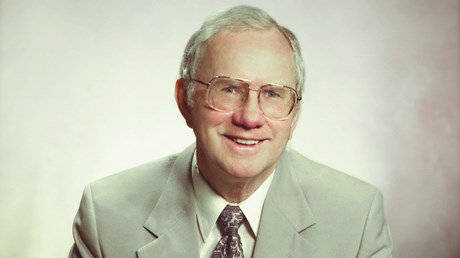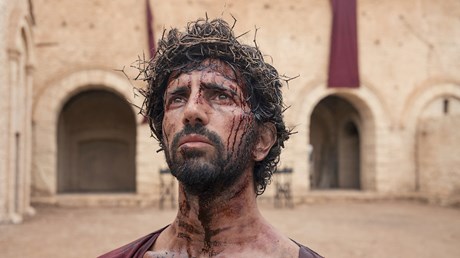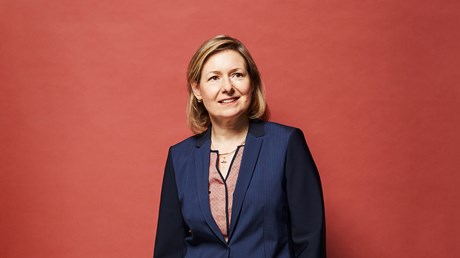Sunday, 31 March 2019
Psalm 14:1
from
https://www.biblegateway.com/passage/?version=NIV&search=Psalm%2014:1
Sapolsky on Cultures: Collectivist vs Individualistic
from
https://www.patheos.com/blogs/tippling/2019/03/31/sapolsky-on-cultures-collectivist-vs-individualistic/
Saturday, 30 March 2019
Isaiah 53:5-6
from
https://www.biblegateway.com/passage/?version=NIV&search=Isaiah%2053:5-6
Friday, 29 March 2019
Isaiah 53:3-4
from
https://www.biblegateway.com/passage/?version=NIV&search=Isaiah%2053:3-4
“Socialism Always Fails”?
from
https://www.patheos.com/blogs/tippling/2019/03/29/socialism-always-fails/
Why Today’s Generation of High Schoolers Need a Gap Year
Five benefits of taking a year off before college.

When it comes to keeping the faith, the odds are increasingly against Gen Z, those born between 1995 and 2015. According to the evangelical Christian polling firm Barna Group’s recent study, the percentage of the U.S. population that identifies as Christian has been on a downward trend since the generation before baby boomers, which Barna calls “elders.” And the percentage of Gen Z that identifies as atheist is double that of the U.S. adult population (13% vs. 6%). 37% of Gen Z believe it is impossible to know for certain if God is real, compared to 32% of all adults. Not only that, Gen Z is uncertain about many other issues pertaining to morality and religion, with an increasingly relativistic worldview.
A Crisis of Knowledge
Jonathan Morrow of the Impact 360 Institute explains why he believes Gen Z can’t seem to commit to a Christian worldview. He lists two main reasons: the fear of being seen as judgmental and all that it encompasses, and what he calls the “crisis of knowledge.” The crisis of knowledge is the belief that we can only glean knowledge from the hard sciences. Both factors contribute to moral ambiguity; both are the product of this “unique cultural moment.”
This is what today’s Christian youth are up against. The answer, Morrow says, is not just sound apologetics. “True information is essential, but by itself it is not enough. It’s just as essential that students have space, relationships, and practices to take ownership of their faith.”
In partial response to this, HoneyRock, the Outdoor Center for Leadership Development of Wheaton College, launched a faith-based gap year called Vanguard. This program invites students into a year of Christ-centered ...
from
http://feeds.christianitytoday.com/~r/christianitytoday/ctmag/~3/9C0FB0cuhio/why-todays-generation-of-high-schoolers-need-gap-year.html
Died: Robert Finley, Reformer of Foreign Missions
After preaching at Billy Graham rallies and revivals in Asia, the Christian Aid Mission founder introduced new emphasis on supporting indigenous missionaries.

Robert Finley—who founded Christian Aid Mission, considered the first missionary organization dedicated to supporting indigenous missions abroad—died last week at age 96.
Finley’s long ministry career intersects with major evangelical leaders and organizations, and his early insistence in the effectiveness of local missionaries over Western outsiders has become a driving principle among missions experts.
“Looking back on 85 years of memories, I am humbled to see God's hand leading me to be an advocate for native missionaries,” he wrote in his autobiography Apostolic Adventures. “I've seen these brave men and women who have sacrificed so much, sometimes their own lives, because of the call of God to reach their own people for Jesus Christ.”
As a young evangelist with InterVarsity Christian Fellowship and Youth for Christ, Finley preached alongside Billy Graham at US rallies, with Cliff Barrows leading the crowds in song. Traveling to China and then South Korea as a missionary, he served alongside Bob Pierce, who went on to found World Vision and Samaritan’s Purse.
His experiences in east Asia and India led him to prioritize the work of local missionaries overseas and to start ministries dedicated to supporting their evangelistic work in their own contexts: International Students Inc. (ISI), a college ministry dedicated to reaching and equipping foreign students, and then Christian Aid Mission, which helped fund indigenous missions around the world. (ISI partnered with the Billy Graham Evangelistic Association and Navigators for office space and staff in its early years.)
Over its history, Christian Aid Mission backed more than 1,500 ministries in 130 countries, including ...
from
http://feeds.christianitytoday.com/~r/christianitytoday/ctmag/~3/7jzzckvuqIQ/robert-finley-died-christian-aid-mission-isi-reformer.html
Jesus’ Life Chosen for Two Very Different TV Series
One is scholarly with a big cable budget, the other is gritty and crowdfunded.

This month brings two profoundly different takes on the biblical Gospels to the small screen. In Jesus: His Life, which premiered Monday and runs through Easter, History seeks to commemorate the Lenten season with a reverent, fast-paced, inclusive miniseries.
“The story of Jesus is one of the cornerstones of Western civilization,” says Mary Donahue, executive producer of the series and senior vice president of programming for History. “Our production partners at Nutopia came to us with this new angle on the life of Jesus. As a network always looking for fresh ways to tell great stories, we were fascinated by the concept.”
History’s docudrama series combines dramatic vignettes filmed on location in Morocco with a wide spectrum of talking-head faith scholars. Its narrative scenes bring to life first-century Judea with desert vistas, elaborate palace sets, and other fitting locales over eight episodes.
Meanwhile, the other TV project has less emphasis on visual spectacle and more on character development. Independent show The Chosen is already turning heads in Hollywood. When upstart platform VidAngel Studios pitched the concept to followers online, they brought in $11 million—a new crowdfunding record for any media project.
Debuting online April 15, The Chosen will reimagine the radical ministry of Christ upending societal norms in a multi-season show. Creators aim for it to be faithful to the biblical text while gritty in tone. “A lot of Jesus projects on-screen are intentionally formal, which often means emotionally detached and less human,” says writer/director Dallas Jenkins.
“We’re striving in this show to lift the curtain and get to what is authentic and real,” ...
from
http://feeds.christianitytoday.com/~r/christianitytoday/ctmag/~3/AeAeRsvKcM0/jesus-his-life-history-chosen-tv-series-vidangel.html
An MIT Professor Meets the Author of All Knowledge
I used to think religious people were ignoramuses. Then I got smart and took a chance on God.

As early as grade school, when I was a voracious reader and a straight-A student, I identified with being smart. And I believed smart people didn’t need religion. As a result, I declared myself an atheist and dismissed people who believed in God as uneducated.
In high school, I led a classroom debate team arguing for a godless form of evolution, confident my side would win because “this was science.” When the class voted and awarded victory to the creation side, I was dumbstruck. Most people didn’t understand science, I figured—either that, or they were unduly swayed by the most popular girl in class. She had a swimming pool in her backyard and threw fun parties.
At the time, I babysat to earn money. One of my favorite families was a young couple; both the husband (a doctor) and the wife were really sharp. One night, after paying me, they invited me to church. I was stunned—people this smart actually went to church? When Sunday morning came around, I told them I had a stomachache. They invited me again the following week, but once more I came down with another phantom stomachache. The more they persisted, the more I struggled to invent convincing excuses. (You try faking an illness to a doctor.)
Just a Phase?
Eventually, the couple tried a different tack. “You know,” they said, “going to church is not what matters most. What matters is what you believe. Have you read the Bible?” I figured that if I wanted to be an educated person, I needed to read the best-selling book of all time. The doctor suggested starting with Proverbs, reading one chapter daily for a month. When I first opened the Bible—this was the King James Version—I expected to find phony miracles, ...
from
http://feeds.christianitytoday.com/~r/christianitytoday/ctmag/~3/LMSslLlBelc/rosalind-picard-mit-professor-meets-author-knowledge.html
Thursday, 28 March 2019
2 Corinthians 5:21
from
https://www.biblegateway.com/passage/?version=NIV&search=2%20Corinthians%205:21
When Was Your Church’s Last Haystack Prayer Meeting?
Many evangelical mission organizations trace their history back to the Haystack Prayer Meeting.

On a balmy Saturday afternoon in August of 1806, five students from the Williams College in Williamstown, Massachusetts, gathered in a field for a prayer meeting.
Suddenly, a fierce thunderstorm broke above them. Caught unprotected from the storm’s winds and lightning strikes, the students turned to the nearest shelter at hand—a large haystack.
There, huddled under hundreds of pounds of cattle fodder, the students carried on with their meeting. One of them, Samuel Mills, laid the groundwork for a vision to reach South Asia with the gospel. But the students did not forget their own backyard: reaching America remained in their hearts.
That gathering became known as the “Haystack Prayer Meeting.” Out of that meeting emerged the American Board of Commissioners for Foreign Missions, founded in 1810.
One of the first sending agencies in America, the American Board of Commissioners for Foreign Missions, galvanized the modern missionary movement. The board sent dozens of Americans across the ocean, including Adoniram Judson, who would be called the father of Baptist missions.
Luther Rice, another of its early members, founded the college that became the prestigious George Washington University and played a pivotal role in creating the Southern Baptist Convention, the largest Protestant denomination in America.
At the place where the meeting occurred, a monument stands today commemorating this historic moment. At the top of the monument is the phrase, “THE FIELD IS THE WORLD.” Underneath those words, it says, “The birthplace of American foreign missions. 1806.”
Today, many historians would tell you that, in some way, virtually all mission organizations trace their history back to the Haystack ...
from
http://feeds.christianitytoday.com/~r/christianitytoday/ctmag/~3/afWfKQ5MwIc/when-was-your-churchs-last-haystack-prayer-meeting.html
‘Pointless’ Bones, ‘Flawed’ Birth Spacing, and ‘Broken’ Genes
Why our flaws alone can’t disprove God’s purpose.

Human mothers have remarkably short interbirth intervals, compared to other ape species. While birth spacing averages four years in gorillas and nearly eight years in some orangutans, women can return to fertility by two months postpartum or earlier, if not lactating, while those who breastfeed begin ovulating again sometime between three months to up to two years postpartum. That puts human interbirth intervals as short as one year—and we can all name a few Irish twins to prove it.
Biologist and popular science writer Nathan Lents sees humans’ cramped birth spacing as a “design flaw.” After all, decreased interbirth intervals are associated with higher infant mortality rates, as parents must shift already limited resources from one helpless infant to another. If nature is obviously capable of addressing this “flaw”—as it did in other apes—why are humans so defective? he asks.
Lents’s answer: It was an accident. Evolution, he writes in his recent book Human Errors, “doesn’t make plans.” Working through the mechanisms of genetic mutations and natural selection, evolution patches together adaptations that ensure the reproductive success of each generation but doesn’t consider long-term outcomes. The result is an array of human “glitches”—from pointless bones to backward retinas to superfluous or broken genes—which Lents cites to support his conclusion, that evolution is “random, sloppy, imprecise—and heartless.”
Lents draws these conclusions at a time when the church is already struggling to articulate the purpose of the human body amid ever-increasing opportunities for bodily enhancement and shifts in sexual ...
from
http://feeds.christianitytoday.com/~r/christianitytoday/ctmag/~3/i3HZJLfHI1k/pointless-bones-flawed-birth-spacing-and-broken-genes.html
Wednesday, 27 March 2019
1 Timothy 2:5-6
from
https://www.biblegateway.com/passage/?version=NIV&search=1%20Timothy%202:5-6
Hope: What Offers the Most? Theism or Atheism?
from
https://www.patheos.com/blogs/tippling/2019/03/27/hope-what-offers-the-most-theism-or-atheism/
Why the Admissions Scandal Is Every Parent’s Problem
College bribery cases point to a common idol.

The recent college admissions scandal has all the elements of a sensational, headline-grabbing story: Rich and famous parents paying bribes. Coaches encouraging fabricated athletic success. Prestigious colleges caught in the crosshairs. And now the potential of class action lawsuits brought against some of our nation’s most elite universities.
While it’s easy to criticize the parents implicated in the scandal, my hunch is that most of us with kids under 30 have taken at least a few steps down the trail of overparenting. Our excessive parenting may not be as obvious and hopefully isn’t illegal. But a recent national study of over 1,100 parents of 18–28 year-olds showcases the common parental tendency to step in to improve our kids’ options.
According to the study, over three-fourths (76%) of parents remind their adult children of upcoming deadlines. Almost that many (74%) are scheduling doctor’s appointments for their 20-somethings, 15% have called or texted their child to make sure they don’t sleep through a class or test, and 8% have contacted a professor or administrator to discuss their child’s college performance or grades. No wonder colleges today are allocating personnel and developing policies to help extricate parents from their students’ daily rhythms and routines.
Over-involved parents of every stripe tend to focus on two outcomes—academic success and economic success, presuming the former leads to the latter. “Getting ahead” easily becomes an idol. For Christian parents, however, success is not the end goal (even if it is the outcome). Instead, we’re called to a simple-but-challenging counter-narrative: to help our kids grow in Christ, ...
from
http://feeds.christianitytoday.com/~r/christianitytoday/ctmag/~3/3Dp_i6Q-B_c/college-admissions-scandal-is-every-parents-problem.html